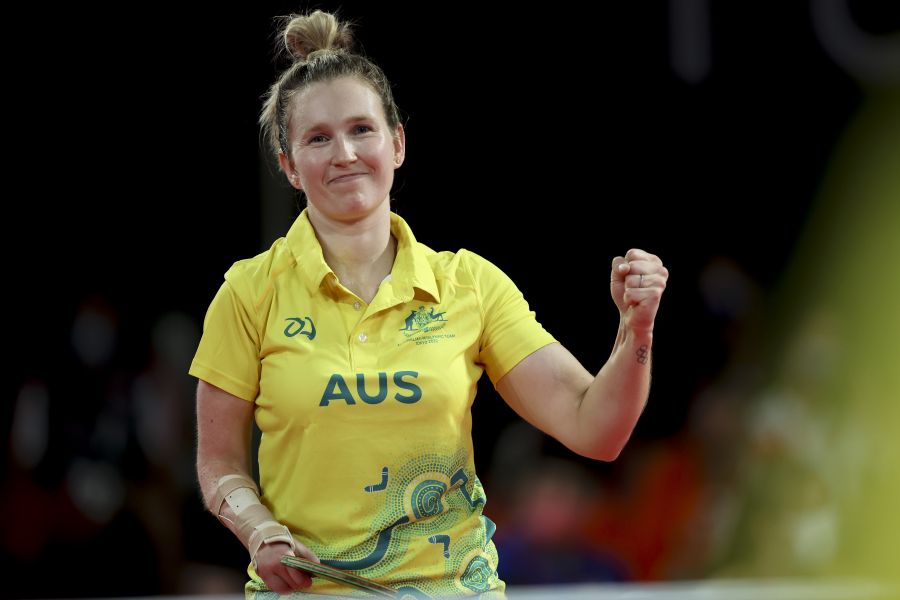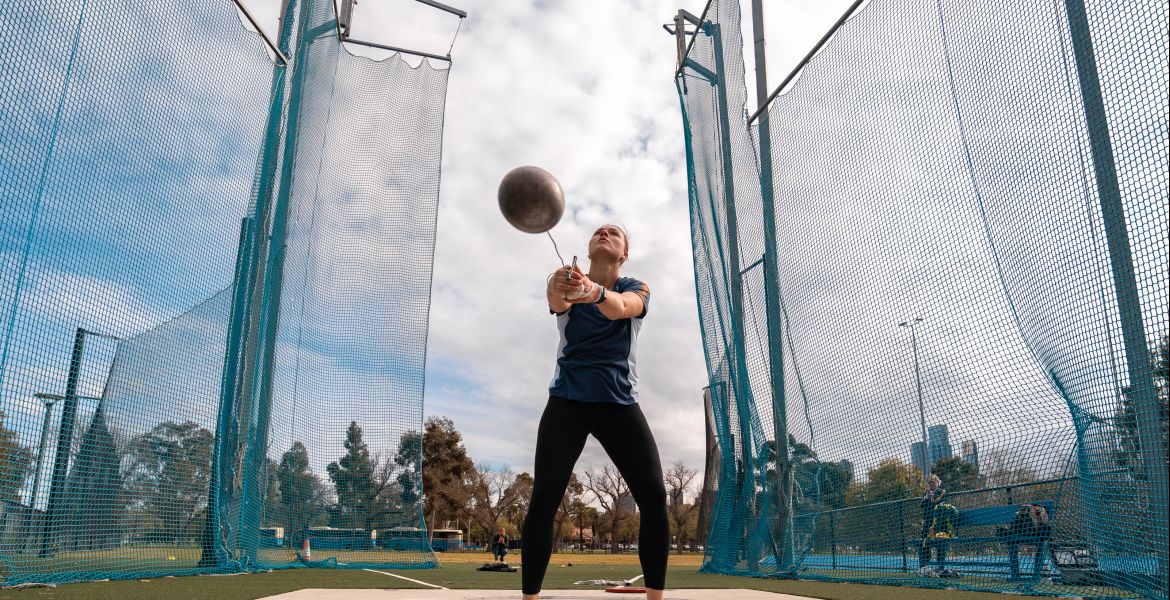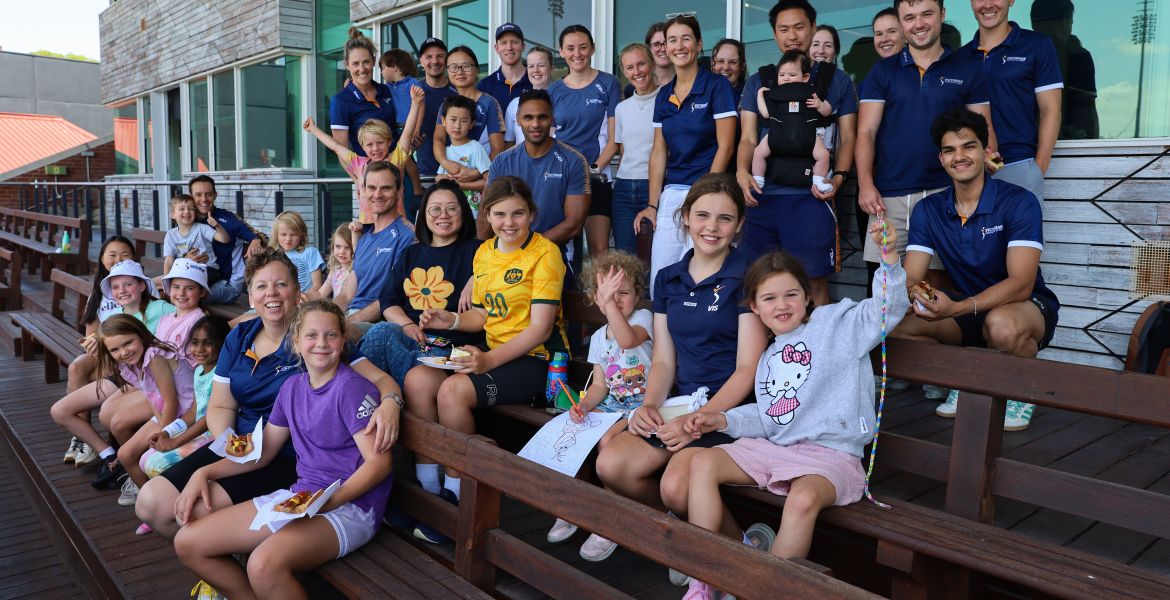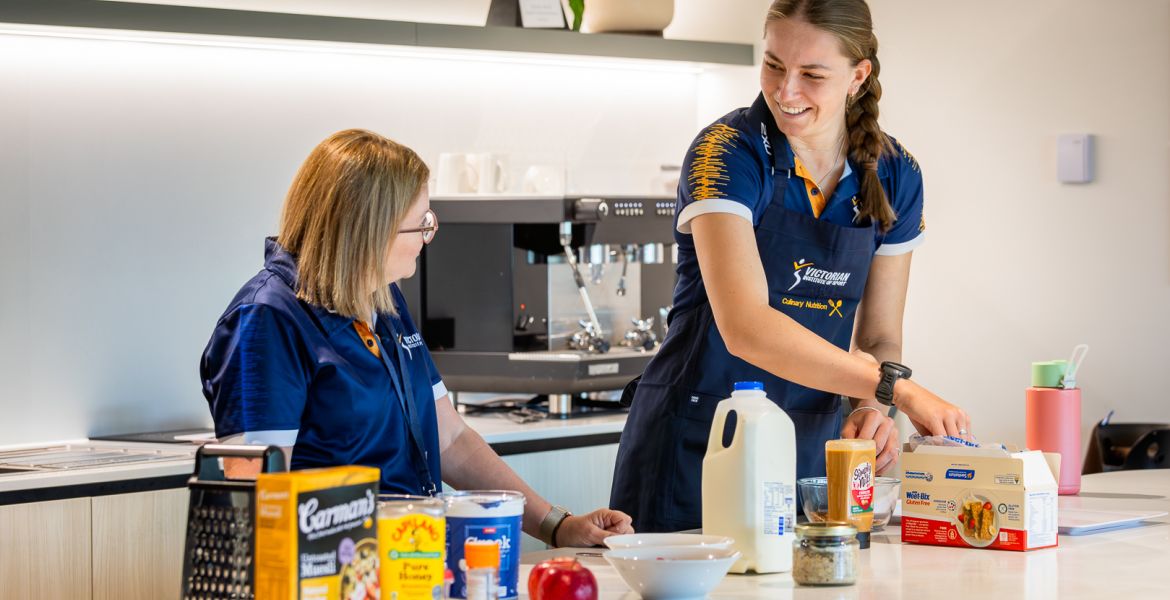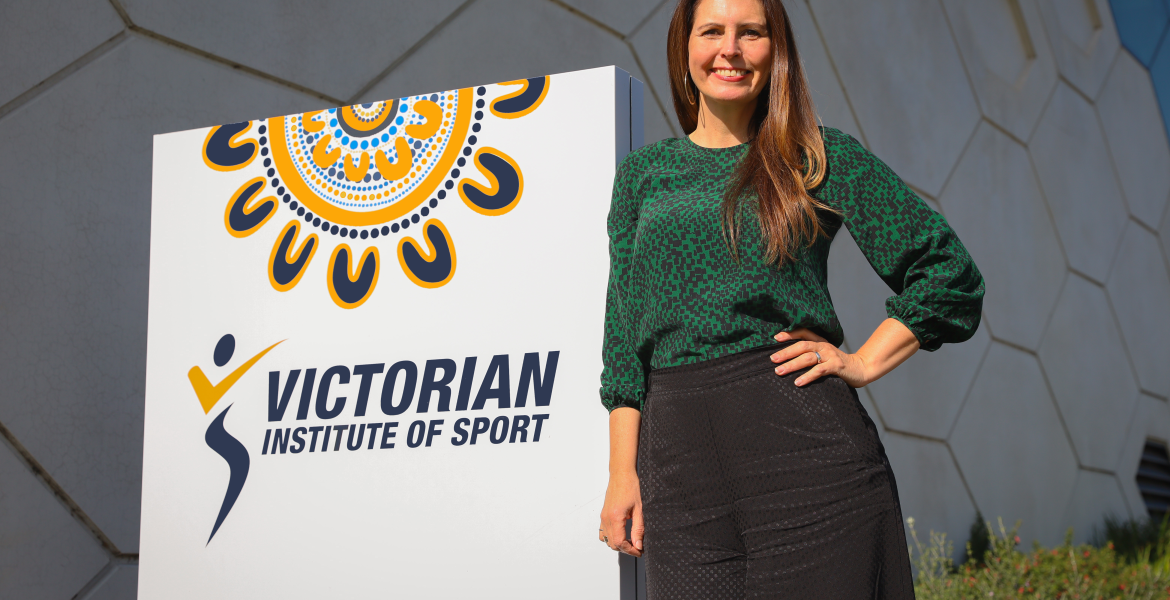The VIS acknowledges and celebrates International Day of People with Disability (IDPwD).
Celebrated on December 3 every year, the United Nations-sanctioned day aims to increase public awareness, understanding and acceptance of people with disability, and celebrate their achievements and contributions.
At the VIS, we have a wonderful history of supporting Para athletes dating back to our first program in 1990. Some of our notable trailblazers include Dylan Alcott OAM (wheelchair basketball and tennis), Don Elgin & Kelly Cartwright (para-athletics) and Emily Petricola (para-cycling).
Many of our Para athletes epitomise the VIS’ motto “success in sport and life”, achieving great success in their chosen sports and in other areas of their life.
Not least Victorian Institute of Sport stalwart, Melissa “Milly” Tapper.
Milly rewrote history books when she played table tennis for Australia at the Rio 2016 Olympics and Paralympics.
She achieved the feat again in Tokyo, a unique achievement that may remain unequalled.
Hailing from Hamilton in regional Victoria, she was born on 1 March 1990 - but that didn't go to plan.
"I weighed 11 pound two when I was born, and I got stuck. I was pulled out by my right arm, and that tore the nerves between my neck and my shoulder.”
Milly suffered a brachial plexus injury which resulted in Erb’s Palsy, a paralysis of the arm caused by injury to the upper group of the arm’s main nerves.
Essentially it made her right arm a dead weight.
At four months old, she had an operation to improve her mobility where surgeons took nerves from her lower legs and attached them to the torn ones in her shoulder.
“After the operation I gained about 30 per cent use, but I had to come up with my own way of doing most of the things that require both arms.”
Despite her injury and its consequences, she was never treated differently nor viewed herself as having a disability.
“There were no special snowflakes in our house, and I was treated the same as my siblings and expected to do house chores just the same.”
When she was eight, her parents bought a table tennis table for them at their holiday house to play and although she was initially hopeless, and her brother and sister didn’t want to play with her she stuck at it and had fun trying.
"That enjoyment and love for it is what kept me coming back and eventually, I guess, I got alright at it."
Now 33, Milly is seeking to reach her third Olympics and fourth Paralympic Games in Paris next year.
No other athlete in Australian sport has achieved the Olympic/Paralympic double, which gives her a unique viewpoint of the world’s greatest sporting event but it’s clear that the Paralympics, and the Paralympic community, holds a special place in her heart.
“I think the greatest thing about Paralympic sport is it's completely raw - what you see is the full athlete just purely going out there wanting to be the best that they can be.”
“You're in a stadium full of athletes that have a disability, but you don't see anybody's disability rather just their ability.”
Her refusal to look at any opponent differently, regardless of whether they are able-bodied or competing with an impairment is one thing that has been consistent across her athletic career.
“Whether it’s Para or able-bodied, I go in with the same approach - no player is Para or able-bodied in my head."
Milly’s route to Paris will be a very difficult one. Which is how it should be, right?
“Qualifying for an Olympic and Paralympic Games is not an easy thing to do. I’ve got really strong teammates now, including World No. 1 Qian Yang, and with changes in qualification rules, it’s going to be tough”.
The likelihood is she will need to win world qualification events for both Games in May 2024 against all the other players who haven’t yet qualified.
As much as she wants to gain selection, she knows she’ll be OK if she doesn’t.
“Overall, when I look back over my career, I’ve just loved it. You always want one more tournament, one more medal, but I’m stoked with what I’ve achieved.”
Tapper’s peace with her success to date, as well having other parts of her life “happening”, has given her a refreshed outlook and new foci.
In 2022, the VIS scholarship holder was contacted by a local Hamilton man who wanted to raise funds for an accessible playground in the town.
Initially she was unsure about how she could assist, until one night whilst on camp at the AIS in Canberra she was struck by her business idea.
The details flooded from her mind into a midnight text message to her husband, Simon, and from that point she was all-consumed by her new venture.
“I had an addiction to it, which reminded me of when I first started playing table tennis. It was all I was thinking about. I lent on people in my network and little pieces began to fall into place.”
After 11 months of hard work, favours and upskilling via Youtube and Google, Southwest Society (SWS) was born - a new kind of society all about inclusion.
South West Society is a streetwear brand that not only “looks good but does good” for the environment and the community.
“At SWS, we believe that fashion should not only be stylish but also sustainable.”
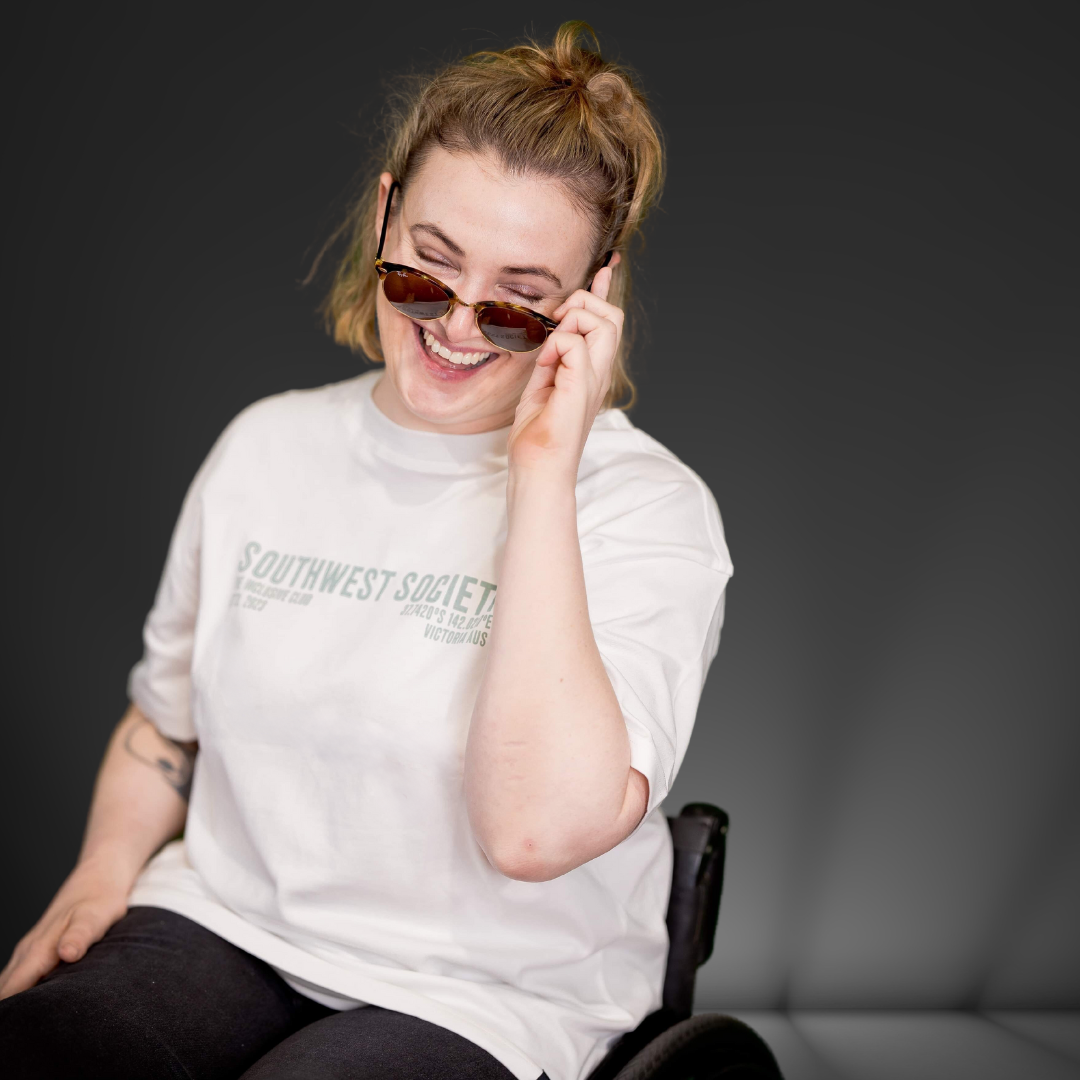
Image: VIS wheelchair rugby scholarship athlete, Shae Graham, repping Southwest Society (SWS)
SWS uses eco-friendly materials in their products and packaging and source their materials from ethical and sustainable suppliers. They are also deeply committed to giving back to the community.
“We partner with local charities and organisations to support causes that are important to us and our customers.”
SWS is currently working with Better Together Hamilton, to raise funds for accessible play equipment for all abilities in the Greater Hamilton community and help educate around disability inclusion.
“I think the most fundamental thing for a kid is to be able to play – particularly with another kid, side by side, whether they have a disability or not. For me growing up, the element of learning to play and have fun is what helped me get into sport.”
A percentage of every SWS sale goes towards Better Together’s mission.
“I get very excited when my phone buzzes and lets me know that an order has gone through. I love the thrill of someone purchasing something, it makes me incredibly happy that someone is supporting it.”
Milly is clearly enjoying this stage of her dual careers.
“The SWS journey so far has been great fun but challenging, and I continue to really enjoy working part-time in the people advisory team at Ernst & Young - both are still quite new to me, and I just want to keep learning and do the best I can.”
“I guess now when I train and compete, I’m even more grateful for it.”
The trailblazing Tapper has never dwelt on the physical challenges she has faced, which is why she is reluctant to see herself as an athlete others can look up to.
"But if I am able to influence people and inspire people to push themselves to achieve more than what they thought they could then that's just a bonus.”
Despite hesitant to describe herself as a role model, that is what she has become.
Find out more about South West Society here.
By Ashley Gillespie
Victorian Institute of Sport

